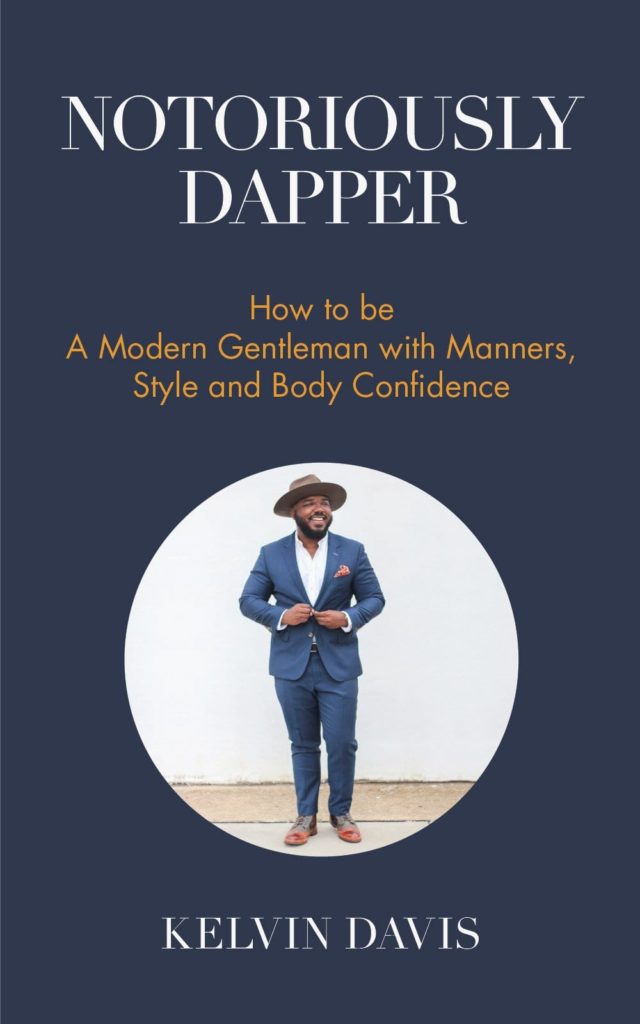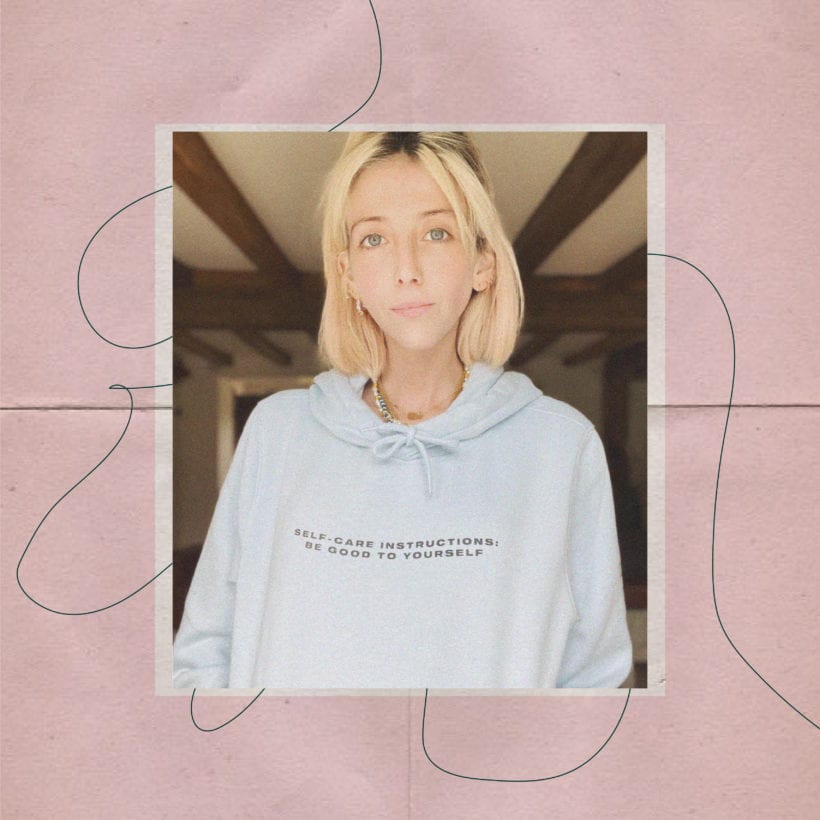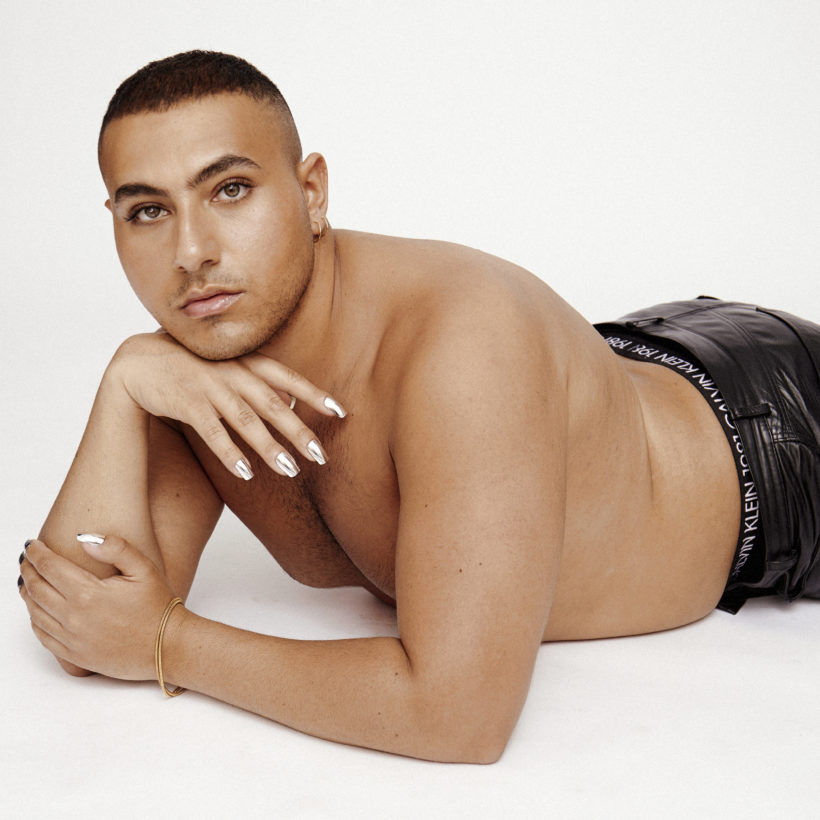There’s increasing awareness and dialogue in how the media — from Hollywood to social platforms — can have a negative impact on the way women and young girls perceive their bodies and “fit in” to societal standards of beauty. But the conversation about how the media influences the self-esteem of men and boys (especially those who identify as queer) isn’t as robust. In the same way, females are taught that their worth comes from their beauty, mainstream media have historically presented males with equally perfect, yet unrealistic, physiques. In a recent study, thanks to the ever-increasing presence of social media, men are faced with a rising desire for a muscular, lean body (the “ideal” male body type). The result? The pressure to conform to a stereotypical body image is often associated with body dissatisfaction and other health consequences like depression and eating issues.
While we’ve made many strides in the beauty and fashion industry in regards to inclusion and diversity, there’s still clearly always room for improvement. We chatted with two movers and shakers in the media — Kelvin Davis and Denver Sean — on their advice for navigating the pressure of obtaining certain body ideals, how fashion and beauty brands can progress the inclusivity movement, and how to love yourself no matter your size, race, or gender.
Kelvin Davis
After being body-shamed while shopping for work attire, Kelvin Davis declared his journey to loving himself unconditionally and began to use his voice and platform to champion men of all sizes to do the same. The model, influencer, activist, and founder of menswear blog Notoriously Dapper, is no stranger to calling out the fashion industry’s lack of representation for people of color — a circumstance that he notes is one of the industry’s most significant issues with inclusivity. He was also recently a guest on The BodPod — a weekly podcast that dives deeper into the people, brands, and topics that are making a difference in how we view our bodies.
Sunday Edit: How did that one shopping trip impact your life and now, career?
Kelvin Davis: When I got enough courage to ask for a larger size, I remember feeling so embarrassed and hurt [when the employee shamed me]. I knew I had to do something about how I felt and bring awareness to others who may have the same feelings but felt they didn’t have a safe place to talk about it.
That’s a reality about male body image, the reality of feeling insecure about your body but having the societal idea of masculinity prevents you from speaking about how you feel. That experience gave birth to Notoriously Dapper, and although I was sad when it occurred, I’m glad it happened to me.
SE: What pushed you to write your book Notoriously Dapper: How to Be a Modern Gentleman with Manners, Style and Body Confidence, and what’s one key takeaway you want people to get from reading it?

KD: I felt that many etiquette books were outdated and often had a ‘toxic masculinity’ undertone [stemming from white, male-created beauty standards]. I know people needed a book about this topic from the point of view of a young, Black male millennial. The knowledge I give is relevant today and will be relevant two decades from now.
The biggest takeaway I want people to have from my book is the importance of being kind without wanting or needing something in return. Genuine, authentic kindness doesn’t need human validation from the person receiving it.
SE: How can fashion brands and media drive the inclusivity conversation as it pertains to male representation?
KD: [When I was in high school, I worked for a retailer] that emphasized white and thin as the standard of beauty. I remember getting colored contacts because I felt my dark eyes weren’t beautiful enough [to fit in]. The media would emphasize that to a larger scale with their castings of models, magazine covers, advertising, etc.
I advise brands to cast and hire men of all sizes, races, and creeds. Some men are ‘big and tall’ — though I don’t like the term ‘big and tall’ to describe our side of the industry — and some are ‘big and short.’ Men come in different sizes, forms, and shapes, and that should be celebrated.
SE: How do you filter out criticisms from people online?
KD: We all can benefit from the real conversations people ignite on social media regarding body image, race, homophobia, and more. However, I ignore the hate received on the internet. I’ve been doing this for a while now, and I’ve gotten to the point where it doesn’t even phase me. So I click the block button and keep it pushing forward. My page is meant to be a safe space for everyone!







